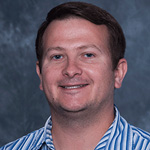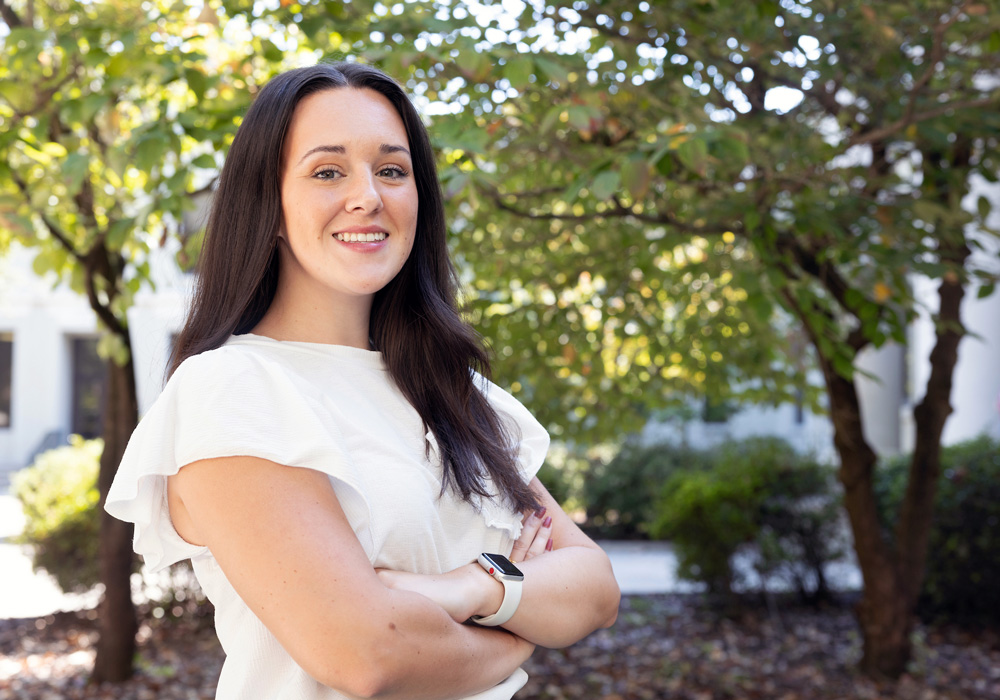For someone who is still in training to become a K-12 mental health counselor, Ansley Rabon already has seen up close the dire need for more such staff in South Carolina schools.
While she was an undergraduate volunteering as a mental health intern in an Upstate middle school, Rabon experienced the aftermath of a shooting that left one 7th-grader dead and another charged with murder. “I was there the following day working with the counseling teams,” Rabon says, “and it really highlighted the critical need for accessible mental health services and culturally sensitive counselors.”
Rabon, who is in the counselor education program in USC's College of Education, is now part of the first cohort of graduate students in Project PRISMS (Providing Resources to Increase School Mental Health Support), a U.S. Department of Education-funded program that aims to help fill the pipeline of counselors and therapists for high-needs schools in South Carolina. The project intends to recruit and train 72 students in five years; 36 are currently enrolled in the first two student cohorts.
PRISMS students receive fellowships that cover tuition expenses and provide a stipend during their clinical placements in high-needs schools in Richland 2, Lexington 1 and Aiken school districts. The expectation is that PRISMS graduates will work for at least two years in those or other high-needs school districts in South Carolina.
“When we look at post-COVID surveys of K-12 students, there are higher levels of depression, anxiety, loneliness and stress — all those things seem to have increased,” says Jonathan Ohrt, an associate professor of education and director of the PRISMS Project who worked as a school counselor nearly 20 years ago.
“The advantage of the training that we're providing is that our graduate students work with students in the school setting, so they have a lot of access to the environment that the students are functioning in," Ohrt says. "They can more closely observe how students are interacting with their friend groups and with teachers. They can work with teachers on how best to support the students and connect with parents.”
Rabon, who is on the clinical mental health track with the intention of working in school mental health services, is currently doing her clinical placement at Centerville Elementary School in Gilbert and at Redbank Elementary School. She and the other 19 students in the first cohort of Project PRISMS are on track to graduate in May.

"The advantage of the training that we're providing is that our graduate students work with students in the school setting, so they have a lot of access to the environment that the students are functioning in."
“I'm learning a lot about the actual practice of being a counselor, from note taking and insurance billing to working within the school system with other staff and teachers to best advocate for students,” Rabon says. “The counselors I'm working with get so caught up in meeting with as many students as they can that they’ll sometimes forget to eat a meal or even a snack. They have a huge number of students that they're responsible for seeing, and it's so impressive that they're able to do that.
“I'm excited for more people like my classmates and me to be going into this setting and helping to meet the demand.”
Rachael Woods, another counselor education student in the Project PRISMS program, started her undergraduate studies at USC with the goal of becoming a K-12 teacher. A conversation with a school counselor at the elementary school where she was student teaching led to her enrollment in the school counseling track of Project PRISMS.
“School counseling will allow me to have the aspects of teaching that I enjoyed, while also working with kids individually that need additional support,” says Woods who is doing her practicum this semester at Carolina Springs Middle School in Lexington. “I’ve started conducting a small group lesson on anxiety and have really enjoyed putting what I’ve learned from my professors to work. This has reinforced my decision to work as a school counselor.”
Kira Harris majored in psychology and minored in counselor education at USC as an undergraduate, but it was a part-time job in childcare that inspired her to pursue a graduate degree through Project PRISMS.
“I want to be part of a community that teaches this age group proactive counseling essentials,” says Harris, who is doing her practicum training at Conder Elementary School in Columbia.
“Currently, I’m working with six students in individual sessions and seven others in my small group. This experience has pushed me out of my comfort zone in the best way, and I’ve become more confident in advocating for the students I support. I’ve felt reassured about my decision to pursue a career focused on helping children and to seek a certification in play therapy.”

